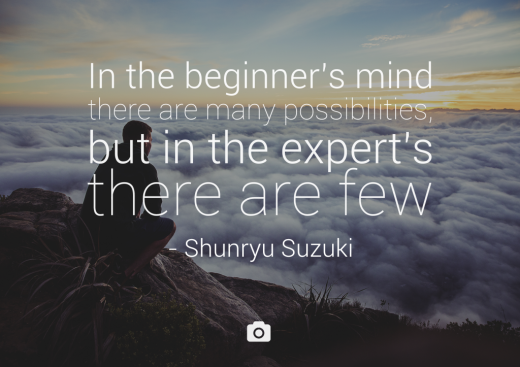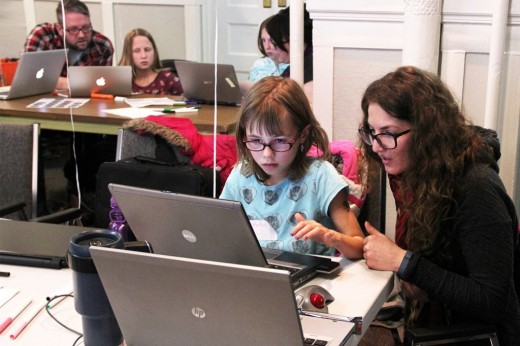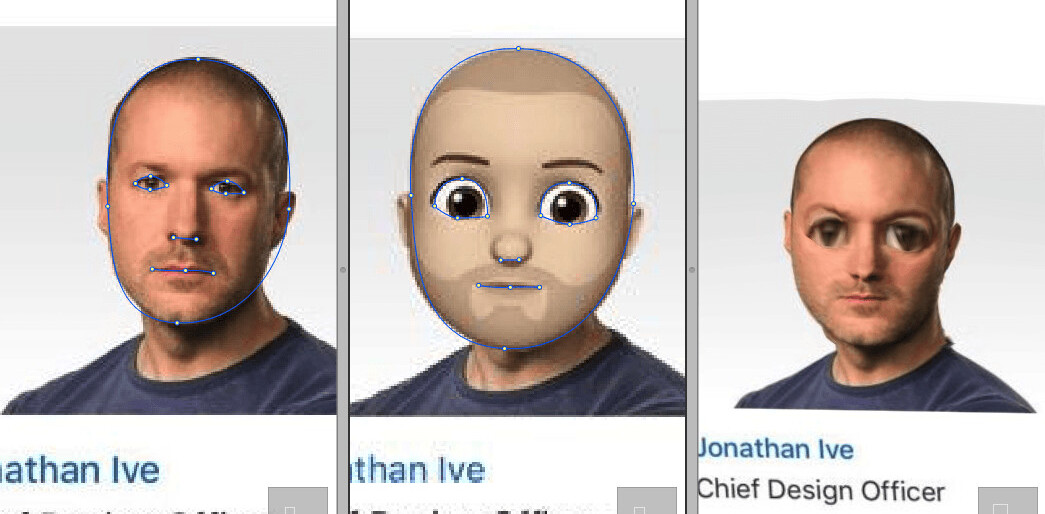
“I don’t know anything.”
It might seem counterintuitive but I try to tell myself this every day when I wake up. It’s quickly becoming my daily mantra.
Now, this isn’t some exercise in self deprecation. I simply want to remind myself as soon as I wake up to see the world with clear eyes.
These days there’s a line up around the block of ‘thought leaders’ and ‘gurus’ begging to give you advice. We praise expertise and give weight to experience. And rightfully so. Those who can, do.
As author Andrew Solomon says:
“It is only by living in the world that you acquire the ability to represent it.”
As artists and creatives we pull from the world around us and from our experiences. But sometimes the very thing that inspires us also holds us back. We think we know all the answers and when we don’t, we panic.
When you hit a creative block you just can’t get past is your expertise helping or hindering you?
The problem with how we learn to learn
In Future Minds: How the Digital Age is Changing our Minds, Richard Watson explains how from an early age we’ve been taught to learn in a very linear manner:
“In primary and secondary education, we are generally taught that there are right and wrong answers to everything. With very few exceptions, we are taught that precise, logical thinking is the way to pass exams and gain university admission.”
From the beginning of our schooling career we’re rewarded for our ability to recall information or to pull from past experiences. As soon as we reach adolescence we focus more on speed and about what our peers think—making us more cautious with our ideas and in how readily we jump into things we don’t feel confident about.
When we enter our professional lives, these traits are so ingrained in us that we become susceptible to psychological effects such as Groupthinkand Self-censorship. Instead of fearlessly jumping into new tasks or exploring strange ideas we ask:
Will people laugh at us for our ideas?
Will they get mad at what we’re saying?
This linear way of thinking creates a single flow of thoughts—something that is far too easy to get blocked. Instead of embracing all of the endless possibilities we get caught up in how we’re ‘supposed’ to get there.
But as Kirby Ferguson, creator of the Everything is a Remix series explains, the most dramatic creativity happens when ideas are combined in new and unintended ways:
“By connecting ideas together, creative leaps can be made, producing some of history’s biggest breakthroughs.”
So if we’ve been groomed to look at things with a narrow view, how do we go about unlearning and finding new ways to connect ideas and break through creative blocks? One way is to embrace the Zen buddhist philosophy of Beginner’s Mind.
How to beat creative blocks with Beginner’s Mind
When faced with a creativity clog creatives will do just about anything to overcome it. Designer Debbie Millman watches Law and Order SVUmarathons, while Aaron Koblin, head of the Data Arts Team in Google’s Creative Lab, says to constantly take notes for inspiration. PhilosopherDaniel Dennett believes in going over all of your notes and ideas and then leave to do something mindless like painting a wall or picking fruit.
What’s common across all of these (except maybe the Law and Orderone) is that they’re looking for a way to step back and think about your work in a different way—to find fresh eyes.
As Zen monk Shunryu Suzuki says in his book Zen Mind, Beginner’s Mind:
“In the beginner’s mind there are many possibilities, but in the expert’s there are few.”
This is what Beginner’s Mind is all about: approaching tasks with an attitude of openness, eagerness, and a lack of preconceptions, even if you’re already an ‘expert’ at it. It’s the ultimate way to give yourself a fresh perspective.
1. Step back and be aware of the process
A fundamental part of Beginner’s Mind is to pay attention to each individual step of the process instead of mentally skipping forward to when your project is finished.
Research has shown that a major part of the creative process is the ability to recognize problems before they exist. Instead of going through the normal linear problem-solving process we’re taught in school, the most creative people are the ones who are skilled in the problem formulation process. They ask questions at every step along the way.
Instead, most of us create a concrete image of what we want to create and how we’re going to get there. But, as Basecamp co-founder Jason Fried says:
“Planning’s too definite a term for most things. We often use planning when we really mean guessing.”
Think about when you’ve hit a creative block in the past. You can see what you want the end result to be, but you just don’t know how to get there. Step back and think of it like someone seeing it for the first time. Let yourself guess instead of plan.
Action: Ignore the final product and focus on the process. It just might take you in unexpected directions.
2. Practice deliberately
If you’ve ever seen a child learn to walk it’s an incredible thing. No matter how many times they fall or stumble, they get right back up with a look of determination on their face until they get that first step down.
In Zen Mind, Beginner’s Mind, Suzuki talks about the effort that beginner’s put into all new tasks:
“For the beginner, practice without effort is not true practice. For the beginner, the practice needs great effort.”
When you’re first learning something new you go at it with all the mental power you can muster. But when you’ve done something in the past and succeeded your mind has a tendency to slip back into ‘safe’ mode to conserve energy. We’re drawn to cognitive convenience—the easiest way always wins out in the end.
Action: Think like a beginner and act deliberately: try, fail/succeed, and then try again. Ultimately you’ll discover things you might have missed originally.
3. Accept you don’t know anything (and that’s a good thing)
In his classic 1962 book, The Structure of Scientific Revolutions, author Thomas Kuhn argued that people who achieve “fundamental inventions of a new paradigm have either been very young or very new to the field whose paradigm they change”.
Throughout history there are numerous examples of people who have changed the scope of an industry at a young age: A 26-year-old Einstein invented the special theory of relativity in 1905; At the tender age of 26 Picasso painted Les Demoiselles d’Avignon and effectively invented cubism; and Mary Shelly created a new form of horror at the age of 20 when she published Frankenstein.
Beyond individuals, Toyota once put together a ‘board’ of children to help advise on product development, while Hasbro and Xerox have done similar things. Children are ‘virgin thinkers’ and are free from the noise of experience. There is no groupthink getting in the way of their ideas, and no real self-censorship from years of learning to follow the ‘rules’ of society.
What do all of these examples have in common? They’re all people (or groups) who didn’t know what they were ‘supposed’ to do. They faced new projects without preconceived notions of the right way to do them and kept their minds open to all possibilities.
As Einstein put it:
“You can never solve a problem on the level on which it was created.”
Action: Push your years of specialization to the side and think with a ‘virgin mind’.
4. Instead of “Yes, but…” say “Yes, and…”
This one comes from designer and developer Stef Lewandowski (who probably wasn’t thinking about Beginner’s Mind at the time).
Saying ‘but’ is just another way of limiting yourself and closing off options that you might not have thought of originally. A beginner’s mind isn’t just open to new ideas, but accepting of them as well. Saying ‘yes, and…’ is the perfect way to bring in new ideas and work them into your own, which as we know is one of the most important parts of being truly creative.
Action: Stay open to new ideas. Stop yourself from saying ‘but’ and limiting possibilities that you might not have considered.
5. Use your experience as a cognitive time machine
Now, I know what you’re secretly thinking by now: “But, I am an expert. Why did I spend all those years doing X if I’m just going to throw them out the window?”
Well, Beginner’s Mind doesn’t mean forgetting all of your past experiences and zapping your mind back into toddler mode. It means stepping back and pushing aside preconceptions while utilizing your native wisdom—all the things that have become natural through years of living, trying, and making. It’s like a mental time machine transporting you back to a point of open curiosity but with a higher level of wisdom.
If we want to take this out of the world of philosophy and put it into more actionable terms you can think of Beginner’s Mind as what best-selling author and designer Paul Jarvis calls The Step Back, or Amazon CTO Werner Vogels calls Working Backwards—get your face out of the details and the nitty gritty and look at your project with new eyes.
And you know who else are beginners? Your customers, clients, or any audience you might have.
Using Beginner’s Mind is an incredible way to think like your audience and put them in the focus of what you’re doing (which was the point anyways, right?)
Action: Keep your wisdom at bay and use it as just another tool in your kit.
During a lecture at BAFTA, award-winning screenwriter Charlie Kaufman (Being John Malkovich, Adaptation) explained the problem of expertise:
“I think we try to be experts because we’re scared; we don’t want to feel foolish or worthless; we want power because power is a great disguise.”
When facing a creative block the last thing we want to feel is powerless. Yet, as Kaufman so elegantly put it, pretending otherwise is just a disguise. However you choose to face your creative block, incorporating aspects of Beginner’s Mind will help you open your eyes to new possibilities and could even take you to places creatively that you could never imagine.
Or maybe I’m wrong. Remember, I don’t know anything.
Read Next: The psychology of simple
Image credit: , Joshua Earle, Shutterstock, Unsplash
This post first appeared on Crew.
Get the TNW newsletter
Get the most important tech news in your inbox each week.











